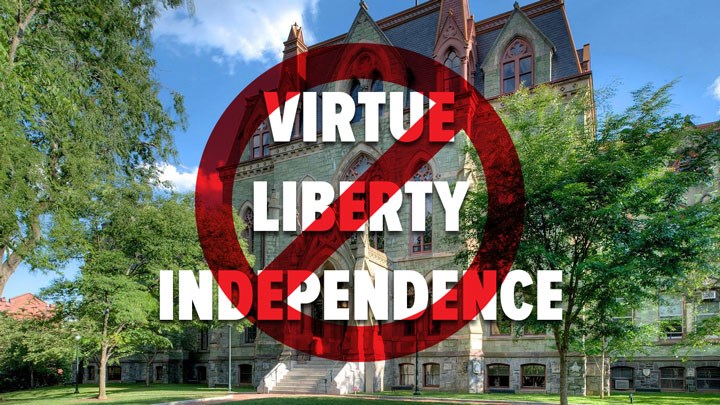
by Karen Mehall Phillips - Friday, March 19, 2021

Pennsylvania’s state motto is “virtue, liberty and independence”—unless you are a University of Pennsylvania (Penn) student interested in hunting, archery or the shooting sports. While more than 750 of Penn’s registered student groups have been hosting virtual events throughout COVID-19, Penn continually refuses to register the Hunting, Archery and Shooting Club supposedly due to the pandemic, let alone allow it to host a virtual event, saying such activities would be “inconsistent with the university’s COVID-19 rules.”
On Mar. 17, the Foundation for Individual Rights in Education (FIRE), dedicated to defending the individual rights of students and faculty members at America’s colleges and universities, stepped in and sent a letter to the university’s Office of the General Counsel (OGC) urging it to stop engaging in viewpoint discrimination—in a state, by the way, that is brimming with thousands of hunters and NRA members—and promptly process the students’ application for recognition.
“In refusing to officially acknowledge the hunting club, Penn’s administration is missing the mark,” said Zach Greenberg, FIRE senior program officer, to the group’s website, theFIRE.org. “Penn must afford these students the same rights and privileges it already provides to its hundreds of student groups.”
In tracking the issue, FIRE’s website notes that the student group first reached out to Penn officials to register their Hunting, Archery and Shooting Club on Mar. 5, 2020. The goal: to “promote sustainable conservation, marksmanship and ethical hunting practices through education and training.”
A year later the club is still sidelined. FIRE first got involved in February 2021, sharing that while the university told the club that the “nature of the group’s mission and potential group activities” could pose public health risks, other outdoor-based groups had been registered over the past year. If permitted to conduct activities, wouldn’t they violate university COVID-19 policies?
So while other clubs have used university resources for the past year amid COVID-19 to expand their memberships and raise funds as part of Penn’s academic community, hunters and shooters have had the door slammed in their faces. Yet aren’t college campuses places where the freedoms of thought and expression, so vital to a diverse democratic society, are supposed to be defended?
According to FIRE, Penn’s ongoing refusal to process the club’s registration also marks a violation of the university’s “Guidelines on Open Expression.” Hopefully, its letter in the Mar. 17 letter put at least a little “happy” back into “Happy St. Patrick’s Day” for the hunters and shooters on campus.
“Today’s letter demands that Penn align its actions with its commitment to free expression and association,” added Greenberg. “By engaging in viewpoint discrimination and delaying the club’s approval process, Penn is shooting itself in the foot.”
Greenberg’s letter explains, “Undifferentiated fear that a group will engage in prohibited activities when the organization pledges not to do so is an impermissible basis to burden the association by denying registration.” FIRE concludes by requesting a response to the letter by Mar. 30.
The irony is that the Keystone State is regarded as the “Birthplace of America,” and Penn is an Ivy League research university based in Philadelphia. Penn is one of the nine colonial colleges chartered in 1740, prior to the U.S. Declaration of Independence. For more irony, its founder and first president was Benjamin Franklin, one of America’s founding fathers.
Maybe freedom and equality for all is still the norm at Penn except for hunters and shooters. Thanks to groups like FIRE, liberties such as the freedom of expression, freedom of association, due process, legal equality, religious liberty and sanctity of conscience still stand a chance in American institutions.
About the Foundation for Individual Rights in Education (FIRE)
FIRE was established in 1999 by University of Pennsylvania history professor Alan Charles Kors and Boston civil liberties attorney Harvey Silverglate after receiving overwhelming response to their 1998 book, “The Shadow University: The Betrayal of Liberty on America’s Campuses.” The book examines how college campuses have become instruments for advancing a politically-correct world view through censorship, double standards and a lack of due process.
A non-partisan, charitable and educational tax-exempt foundation, FIRE protects the fundamental liberties of tens of thousands of students and faculty members on America’s campuses while educating students, faculty, alumni, trustees and the public about the threats to these rights. In case after case, FIRE works for favorable resolutions for those facing rights violations as well as for students affected by the culture of censorship within these institutions.
E-mail your comments/questions about this site to:
[email protected]
Proudly supported by The NRA Foundation and Friends of NRA fundraising.
